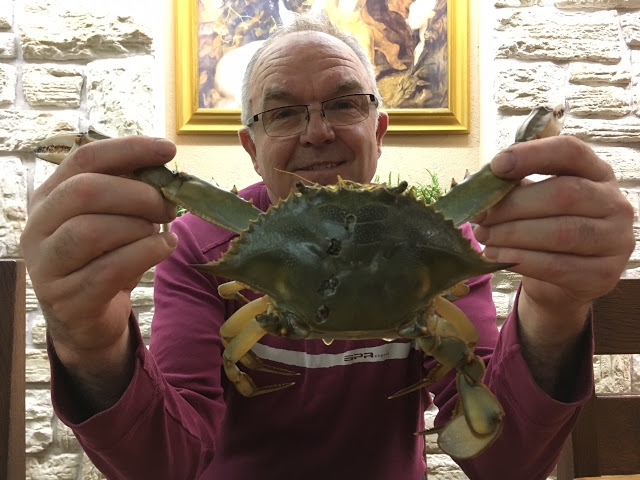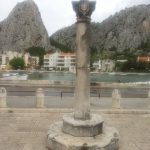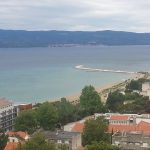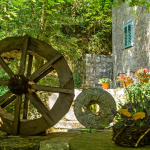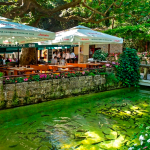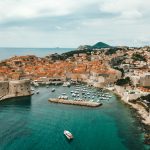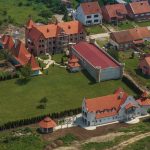“I am not afraid to go into the unknown, be a pioneer. For example, we are soon releasing our first harvest of Yellow Muscat, a variety never present in vineyards this far south. And I am impatient to see what a semi-sweet Muscat wine from this area will look like,” says Branko Prović, highly educated hotelier and owner of the Merlot Hotel in Opuzen, former trader, who ten years ago, with consternation from oenologists, decided to have a Chardonnay where no one could imagine it – on the sands of the Neretva River delta into the sea. Branko was not wrong then.
“When I speak of the beginnings of our wine story, I always point out that Chardonnay, which later became the pride of our winery, was not even among the recommended cultivars for this area. Furthermore, when the then-director of the local Wine Growing Institute Ivanka Čelar pointed out this fact, I answered that we would correct this and will do everything to prove the opposite,” remembered Branko the “history of his stubbornness.”
With the help of several friends, but also winemakers from Pelješac, who advised him in good spirit of a line of steps needed to prove his claim, he wrote a long letter and addressed it to the Agriculture Minister. Branko had something to write about, as common logic suggested that Chardonnay thrives in almost identical geographic and climate conditions of the Neretva delta in various parts of the planet. On the other hand, he could not avoid finding inspiration in his comments to Minister Božo Pankretić from his compatriot Miljenko Mike Grgić, whose Chardonnay Chateau Montelena secured him immortality at a blind tasting in Paris in 1976, when the scorned Americans from California beat their French idols and proved to the whole world that wine is no longer a French exclusive.
“If Grgić managed to convince the world that Chardonnay has gone beyond France and there are other areas where it can give excellent results, then why should it be a problem for me to convince anyone that a dry bureaucratic rule, written who knows when, is incorrect and should be rectified. Only three months later Chardonnay was listed as a recommended variety in the south of Croatia!”
It was 2002. Branko had already participated at several wine festivals, his pride boosted by a gold medal at the GAST fair in Split, for his Merlot bought from subcontractors.
“Honestly, I did not expect anything from that wine. It was my game in which I added my family wine heritage. The gold medal lifted me high, I decided to raise the bar and have my own vineyards, oversee the entire wine production process, from planting vines to the final product. GAST was the prefect trigger to make dreams come true. I could not presume at the time how far I would go with the Chardonnay, only an idea which I didn’t even know was any good. But, without making the first step, one cannot get anywhere or do anything. No need for fear, as the one who is frightened gets nowhere.”
Branko’s vineyards are literally at the Neretva delta, not far from sand shoals above which in the summer afternoons hundreds of kite surfers fill the sky using the unusually strong western Maestral wind. Branko doesn’t even see those modern wind hunters, for him the Neretva valley is still that salt lake Modrič lost 50 years ago after ground melioration.
“There was melioration which dried the ground, with a lot of fossil remains, salts, minerals which influence strongly the character of wine. Melioration could not expel what had sifted for millions of years! The time of melioration was the time of my childhood. I remember well the Modrič lake at the Neretva delta, close to my current vineyard, a rich fish reserve. I claim its drainage, instead of draining around it, created irreparable damage to the entire animal system of the Neretva valley. I remember well when the water in Modrič was only five centimetres deep, as kids we went there and with baskets brought out 10 kilograms of eel in one sweep. I cannot today imagine even the best fishermen to catch so much eel in several days!”
Honouring this salty lake, where fresh and salt water mixed, his first association of childhood, Branko named his Merlot and Cabernet Sauvignon coupage – Modrič, made only in the best of years. He feels this preserves the memory of the inexistent lake “which fell victim to the socialist imperative of making fertile fields on former swamps.”
“Just to be honest, the melioration in the Neretva valley didn’t just do harm, lots of good was done as well, turning a sick valley into a valley full of life. However, I regret the drained lakes, those 300 hectares where mandarins now grow mean nothing.”
From that time Branko recalls the grapes from the vineyards were taken to the winery in Opuzen with boats, as well as how he taught himself to drive the small Neretva boat before even learning to swim. It seems he will never get over being too thin or light to keep company with the older girls who stomped grapes with their feet by lifting up their skirts.
“Harvest was always a festivity in this area, everything ended in joy and fun, while women added a level of erotica to the hard work,” says Branko.
But, unlike the vineyards of his childhood, when only two varieties were cultivated – Plavka, Plavina or Brajda and Kadarun, which was immediately sold to Bakar to produce Bakarska Vodica, Branko Prović decided to include, besides Chardonnay, Merlot, Cabernet Sauvignon and now Yellow Muscat.
Naturally, the label design was meant to honour the Neretva valley…
“Our label shows the entire Neretva valley with its recognisable canals woven into a grape cluster. I call such land with small canals around it the Neretva lace. But the homage is not only in the image, there are also the wine names which also tell Neretva history. Naron, the name of our Chardonnay, resided in Narona, our Zlatarica was named after Queen Livija, rose after the Illyrian Queen Teuta, also connected to the Neretva…”
Although the Neretva valley is practically surrounded by fascinating vineyards of Pelješac and Komarna, Branko in his assortment does not have the variety which is common in the area – Plavac Mali. And he says he never regretted such a decision.
“In fact, it is a good feeling to be surrounded by Plavac Mali, and not having it. A very good feeling, it is wonderful to be different, especially being great friends with all these winemakers using Plavac Mali. We all walk differently, wear different shoes, clothes, have different professions… On the other hand, it is clear that Plavac Mali is not a variety for a vineyard at the Neretva delta, it needs different terrain. So I decided to use varieties which will give the best results on such terrain.”
Branko is a hotelier by profession, was in trade for a long time, and in the end, some ten years ago, decided in his native Opuzen, along the Adriatic touristic road, to construct a hotel named Merlot. Wine and hotels found a perfect voice, so good that even Branko loves to recite his favourite “wine poet” Charles Baudelaire.
“I love to quote him when he says: ‘One evening the wine began to sing: I know how much it takes, when the hill is on fire, labour, sweat, sun burning to the bone, for my soul and my life to be created, but I have no malice and ungratefulness…’ But I also love his short poem on wine, almost a haiku: ‘Even the dirtiest hole can be dressed by wine and create fine carvings on the ceiling!’ Baudelaire found the essence of wine and that’s why I love him! Baudelaire is great, cannot be bypassed. Lorca wrote as well, but he saw it through the expression of the conflict in Spain, with him the wine is blood, sword, silk, for him wine is not like with Baudelaire – a pleasure. I am fond of poetry, and when I drink this relationship to poetry is multiplied.”
Branko also enjoy his friends who gather once a week or two weeks, where he takes care of cooking and wine. Naturally, in gastronomy he is a traditionalist, loves brodettos, sauces, risottos, no affinity for grilling, as he feels “meals are cooked, not baked!”
“In the last weekend in November we organise in our hotel the Eel Days. The eel story is a part of my childhood when the Neretva valley had a lot more water than today. Lately we have a new gastronomy offer with modern times. For example, a novelty is the blue-tailed crab, which apparently came with ballast water in ships, in large amounts.”
For the original and more from Vinske Priče blog on wine, click here.

